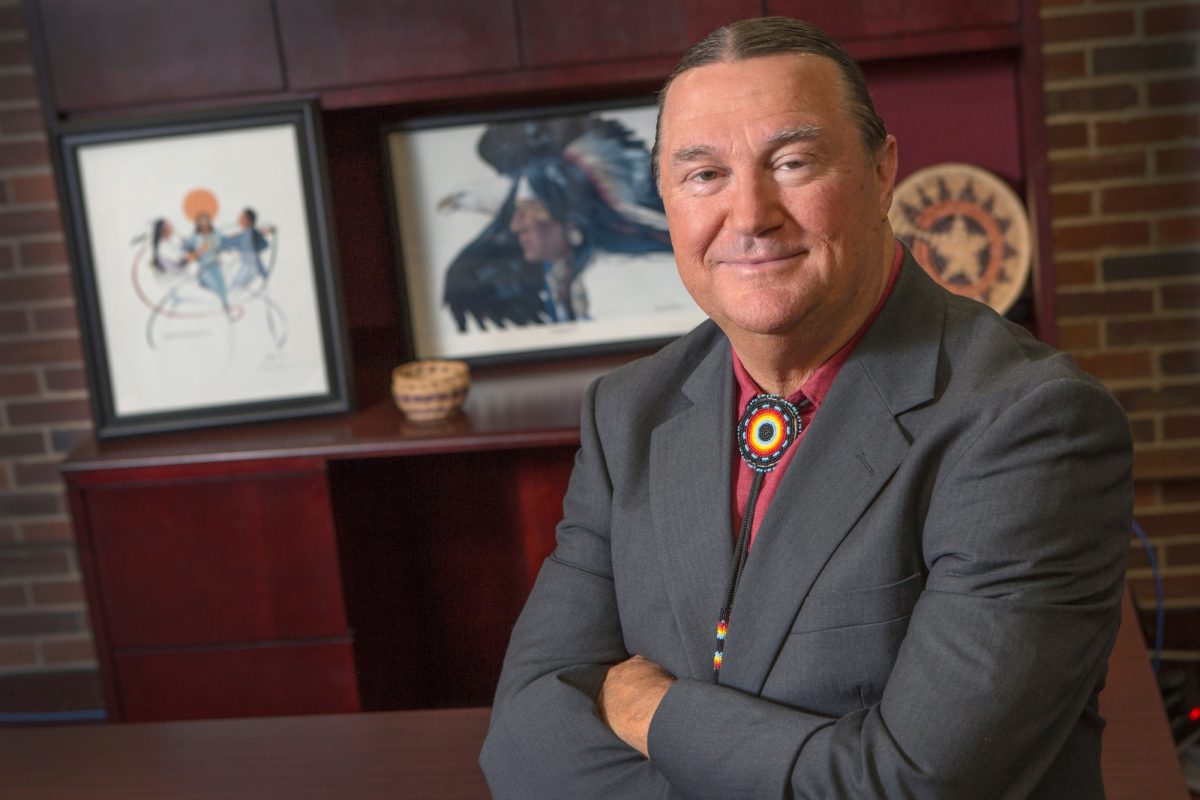
Dr. John Lowe of Florida State University will open the Helen Glass Research Symposium with his lecture, “The Impact of Colonization on the Health Equity of Indigenous People.”
‘Not less than human’
Symposium to explore impact of colonization on Indigenous health
Update: The Helen Glass Research Symposium originally scheduled for March 16 – 18, 2020 has been postponed. A rescheduled date will be announced soon.
North America’s Indigenous people face many health disparities, much of which can be traced back to colonization of their land by European settlers, says the keynote speaker of this year’s upcoming Helen Glass Research Symposium (HRGS).
The event, hosted by the College of Nursing, will be held March 16 – 18 at the Canadian Museum for Human Rights. Dr. John Lowe, Cherokee Native American tribal member and a professor at Florida State University (FSU) will open the symposium with the Helen Glass Lecture, titled “The Impact of Colonization on the Health Equity of Indigenous People.”
Lowe is the founder and current executive director of the Center for Indigenous Nursing Research for Health Equity at FSU. He was the first Native American man to be inducted as a fellow in the American Academy of Nursing, and is an advocate for competent and compassionate health care for Indigenous people globally.
“Dr. Lowe’s insight will be invaluable, as there are significant health disparities that exist for Indigenous people here in Manitoba, as well as across Canada and globally,” said HGRS chair Dr. Christina West. She pointed to a recent study from the U of M that revealed the life expectancy of First Nations people is lower in Manitoba than for the rest of the population. “The health gap is widening in Manitoba and this needs to be addressed.”
We spoke to Lowe about his upcoming lecture.
How big is the impact of colonization on the health of Indigenous people in North America?
The colonization that occurred in North America definitely impacted the status of Indigenous people, because colonization meant genocide, dispossession of land, life and culture. Dispossession equals disparities, and for Indigenous people the greatest disparity is in the area of health.
You have spoken about health issues among Indigenous people around the world, including Australia, Canada, Costa Rica, Jamaica and New Zealand. What differences or similarities do you see facing Indigenous populations in these different areas?
One of the interesting things about colonization is that it follows a pathway. In North America it began with an attempt to do what the Europeans called “discovery” – and in some cases that discovery resulted in looking at those who were already there, the Indigenous people, as maybe not being entitled to their land, or even entitled to existing. Then genocide occurred. That genocide was the result of many actions, such as boarding schools, residential schools, removals and relocations of Indigenous people. Then government control led to policies that took away their viability and rights.
You developed a talking circle intervention program for the prevention of substance use and risk behaviors that has been used by the U.S. Department of Justice. Is this something you will discuss during your presentation?
Yes. For the most part it’s been used with Indigenous youth. This is a way to make sure that we continue to exist as a people, to address this and give our youth some knowledge and understanding about why we have the issues that we do, like substance abuse and high levels of diabetes. If we don’t save our youth we don’t have a future, and then we, as Indigenous people, have really lost.
What else can health-care professionals and researchers expect from your lecture?
Hopefully to understand why Indigenous people have the health disparity issues that we do, that we are not misfits or less than human. There is a reason for this disparity – it’s not because we’re dysfunctional, and if there is any dysfunction there is a reason for that. What I try to do is give some context to the issues, and so that when anyone works with our community, such as health professionals, that they are not judgmental and come in with an understanding. When colonization and genocide occurs to a whole population of people, you are going to have issues. You need an understanding to move forward.







Could this session be listened to as a video or webinar by faculty who are out of town?